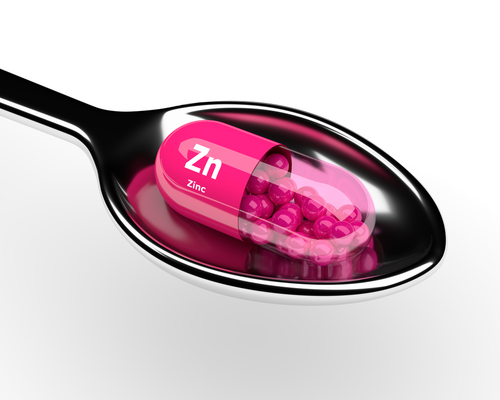Preconception zinc deficiency could spell bad news for fertility:American Physiological Society News
American Physiological Society News Apr 26, 2018

While a variety of factors can make it difficult for some people to get pregnant, ovulation disorders are a leading cause of female infertility. Now, researchers at Pennsylvania State University have found that zinc deficiency can negatively affect the early stages of egg development, reducing the ability of the egg cells to divide and be fertilized. This may affect fertility months in the future.
The researchers will present their results at the American Physiological Society annual meeting at Experimental Biology 2018 in San Diego.
The availability of micronutrients in the ovarian environment and their influence on the development, viability, and quality of egg cells (oocytes) is the focus of a growing area of research. In mammals, the ovary is made up of thousands of structures called follicles—women are born with approximately two million—which consist of one oocyte surrounded by layers of support cells (somatic cells).
After puberty, a complex cascade of events occurs to prepare groups of oocytes for maturation, ovulation, and fertilization. Though a group of oocytes begins to mature each month, only one will be ovulated and have the chance of being fertilized. Multiple factors can influence whether a given oocyte will mature correctly and one day be ovulated, including the presence of sufficient levels of certain micronutrients.
“More and more evidence is accumulating that zinc is a key player in oocyte development,” lead author James Hester said. In the current study, Hester and his adviser, Francisco Diaz, assessed the effects of zinc on egg development extremely early on in the oocyte maturation process.
“Fertility research and treatment has primarily focused on the largest class of follicles (antral follicles), which are capable of ovulating in response to hormonal signals from the pituitary gland,” Hester wrote. “In contrast, our study examines smaller preantral follicles, which are still growing and don’t respond to the ovulatory signal yet. In humans, preantral follicles have to keep growing for about 90 days before they are ready to ovulate. Previous studies showed that zinc levels are critical in the antral follicle, but no one had tested the effect of zinc deficiency on preantral follicle growth.”
The researchers collected preantral follicles from mice and matured them in a cell culture dish. They compared eggs matured in a zinc-deficient environment to those grown with normal levels of zinc. They also exposed the zinc-deficient and control eggs to epidermal growth factor to mimic the hormonal environment necessary for ovulation after the maturation process.
Hester and Diaz found that preantral zinc deficiency:
- disrupted growth of cells in culture,
- led to smaller egg cells early in development,
- caused problems with development of somatic cells and elevated certain cell markers, and
- impaired the egg cell’s ability to properly divide (meiosis), a necessary step before successful fertilization can occur. This defect persisted even after more zinc was introduced to the environment.
“Animal studies have consistently shown a zinc requirement for oocytes during meiotic division, fertilization, and embryo development. Our new research shows that zinc plays a role in oocyte growth at an earlier stage than previously investigated, during development, and before division. Otherwise, it doesn’t matter what the conditions are during ovulation,” Hester explained.
“Interestingly, the oocytes commonly used for [in vitro fertilization] are collected from antral follicles, so any effects from preantral development have already occurred.”
-
Exclusive Write-ups & Webinars by KOLs
-
Daily Quiz by specialty
-
Paid Market Research Surveys
-
Case discussions, News & Journals' summaries